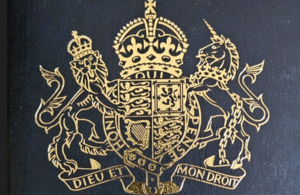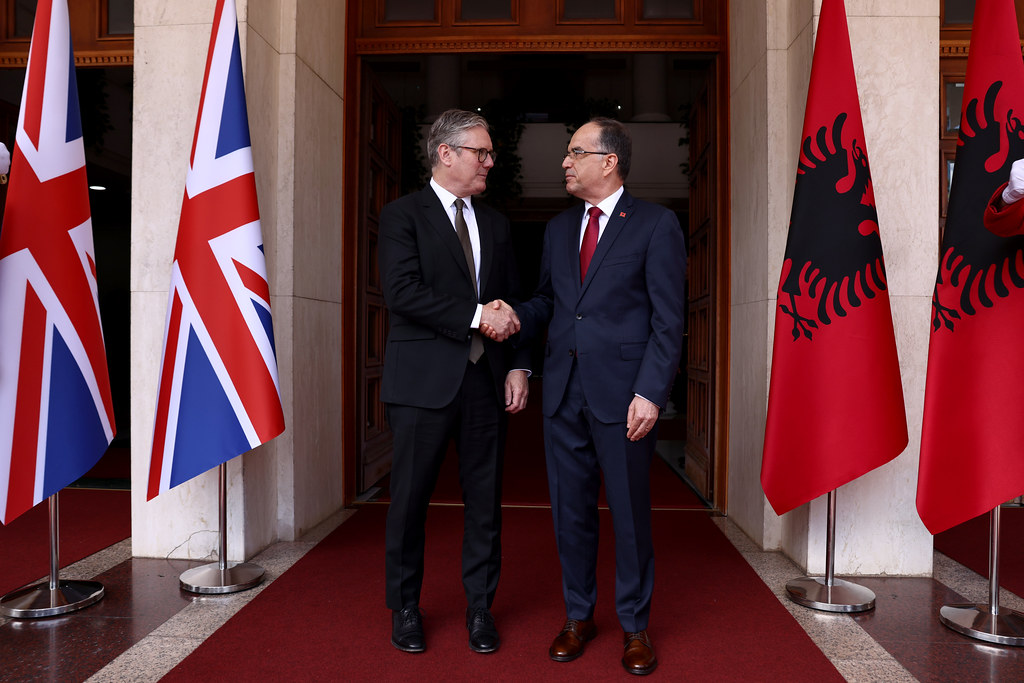The government will also expand its powers to scrutinize media mergers to include news websites and news magazines
Britain plans to allow foreign state-owned investors to own up to 15 percent of British newspaper publishers, the government said on Thursday, as part of media reforms that could end long-running uncertainty over ownership of the Telegraph newspaper.
The government will also expand its powers to scrutinize media mergers to include news websites and news magazines.
“These important, modernizing reforms are about protecting media plurality and reflect the changing ways in which people are consuming news,” Culture Secretary Lisa Nandy said.
“We are fully upholding the need to safeguard our news media from foreign state control whilst recognizing that news organizations must be able to raise vital funding.”
The ownership of the Telegraph, one of Britain’s best known newspapers, has raised questions about the independence of the media and foreign states buying political influence.
The government said “targeted exceptions” allowing certain sovereign wealth funds or pension funds to invest up to 15 percent in British newspaper and periodicals would help sustain the titles while also limiting any foreign influence in media.
The government does not plan to exempt debt financing, but warned that if a foreign power gains control through a default, it could trigger a ministerial intervention under existing rules.
Britain’s previous Conservative government last year banned foreign state investment in British newspapers, blocking RedBird IMI, run by former CNN boss Jeff Zucker and with the majority of its funding from Abu Dhabi, from owning the Telegraph.
Abu Dhabi-backed RedBird IMI took control of the Telegraph titles and the Spectator magazine in 2023 when it helped repay the Barclay family’s 1.2 billion pound ($1.6 billion) debt to Lloyds Bank.
It put the titles up for sale nearly a year ago. The Spectator was sold to hedge fund founder Paul Marshall in September, but the Telegraph has not found a buyer.
The 15 percent cap would allow Abu Dhabi to retain some ownership of the paper.
The decision to set the ownership threshold at 15% follows an intensive lobbying campaign by newspaper industry executives concerned that a permanent outright ban could cut off a vital source of funding to an already-embattled industry.
It would mean that RedBird IMI, the Abu Dhabi state-backed fund which owns an option to take full ownership of the Telegraph titles, would be able to play a role in the newspapers’ future.
RedBird Capital, the US-based fund, has already said it is exploring the possibility of taking full control of the Telegraph, while IMI would have – if the status quo had been maintained – forced to relinquish any involvement in the right-leaning broadsheets.
One industry source said they had been told to expect a statement from Lisa Nandy, the culture secretary, or another DCMS minister, this week, with the amendment potentially being made in the form of a statutory instrument.
Other than RedBird, a number of suitors for the Telegraph have expressed interest but struggled to raise the funding for a deal. The most notable of these has been Dovid Efune, owner of The New York Sun, who has been trying for months to raise the £550m sought by RedBird IMI to recoup its outlay.
Another potential offer from Todd Boehly, the Chelsea Football Club co-owner, and media tycoon David Montgomery, has yet to materialise. RedBird IMI paid £600m in 2023 to acquire a call option that was intended to convert into ownership of the Telegraph newspapers and The Spectator magazine.
That objective was thwarted by a change in media ownership laws – which banned any form of foreign state ownership – amid an outcry from parliamentarians.
The Spectator was then sold last year for £100m to Sir Paul Marshall, the hedge fund billionaire, who has installed Lord Gove, the former cabinet minister, as its editor.
The UAE-based IMI, which is controlled by the UAE’s deputy prime minister and ultimate owner of Manchester City Football Club, Sheikh Mansour bin Zayed Al Nahyan, extended a further £600m to the Barclays to pay off a loan owed to Lloyds Banking Group, with the balance secured against other family-controlled assets.
Other bidders for the Telegraph had included Lord Saatchi, the former advertising mogul, who offered £350m, while Lord Rothermere, the Daily Mail proprietor, pulled out of the bidding last summer amid concerns that he would be blocked on competition grounds.
The Telegraph’s ownership had been left in limbo by a decision taken by Lloyds Banking Group, the principal lender to the Barclay family, to force some of the newspapers’ related corporate entities into a form of insolvency proceedings.
The newspaper auction is being run by Raine Group and Robey Warshaw.














